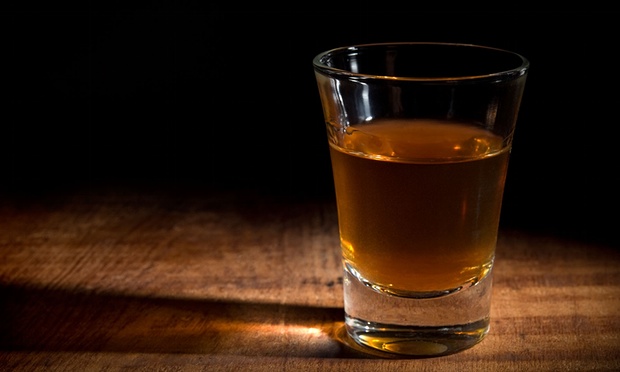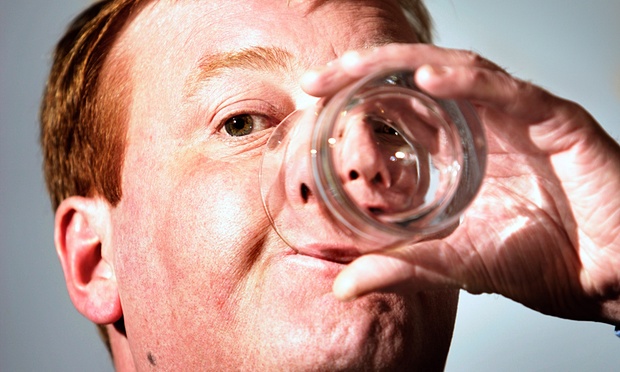Forget ‘Fighting Demons’. We Must Learn How to Talk Properly about Alcoholism
HEALTH, 30 Nov 2015
My dad was an alcoholic – and what every child of someone with this disease learns is that we can’t change things for our parents. But we can for our children.

‘Like all children of alcoholics, I learned the sheer, choking agony of worry: is he OK? Is he on a floor? Am I doing enough? Am I a good son?’ Photograph: Anton Prado/Alamy
26 Nov 2015 – There’s no way I’d be in politics if it weren’t for the inspiration of my dad, Dermot, who I lost just before the election. He even paid my subscription to join the Labour party when I was 15.
He was an extraordinary bloke. The son of Irish immigrants, he battered his way from Shepherd’s Bush into grammar school and then to university, the first person in his family to go. At Durham in the late 60s he met my mum, and like two star-crossed lovers, they campaigned – against apartheid – dreamed, planned a family, and both graduated to give their lives to public service. My dad was fascinated by Clement Atlee’s new towns. He became a planner, and that’s why I grew up in Harlow, where Dad rose to become the council manager. But for most of his life my dad was trapped in a deepening addiction to alcohol. And when he lost my mum at the age of 52 to pancreatic cancer, it knocked him over the edge.
From my early teenage years, ours was a love-hate relationship. When he was in a suit in the morning, off to save the world, I adored him. But once he’d had a drink, I couldn’t bear to be near him. Like most children of alcoholics, I learned to make myself invisible – I wanted to disappear from the slurring embarrassment. I learned all about chronic insecurity. The sickness in your stomach when you find empty bottles of booze hidden round the house. I spent a lot of time in hospitals. A couple of years ago I was in the middle of Labour’s battle on welfare reform – but had to duck out to spend a week holding my dad’s hand in an intensive care unit where we were told he had a one in 10 chance of survival. It was agony. He pulled through. But it didn’t stop him drinking.
Like all children of alcoholics, I learned the sheer, choking agony of worry: is he OK? Is he safe? Is he on a floor? Is he eating? Am I doing enough? Am I a good son? Am I obeying the commandment to honour your mother and father? The guilt: why aren’t I there to look after him?
Yet I had it easy. Really easy. So many children of alcoholics have it worse. In fact, children of alcoholics are three times more likely than others to consider suicide – and three times more likely to become alcoholics themselves. Alcohol harm already costs our country £21bn a year, yet we’re doing almost nothing to stop this curse of alcoholism cascading down the generations.
I have been slightly stunned over the past few days by the sheer number of people – from MPs, to journalists to members of the public – who’ve got in touch to say “me too”. The scale of this problem is immense: one in five of our children is the child of a hazardous drinker. That’s 2.6 million kids.

‘When Charles Kennedy died, I snapped. I admired Charles, and I just couldn’t stand the way people talked about his fight with “demons”. For heaven’s sake, it wasn’t demons. It was a disease.’ Photograph: Murdo Macleod for the Guardian
The hardest thing for me in recent days has been reading the stories people wanted to share, with tears running down my face. I tell you, I feel now that there is an epidemic of this agony in every corner of the country. And the pain can last a lifetime. One man – still unable to forgive his father – told me he was still grappling with the pain at the age of 70.
When Charles Kennedy died, I snapped. I admired Charles, and I just couldn’t stand the way people talked about his fight with “demons”. For heaven’s sake, it wasn’t demons. It was a disease. It made me feel that we’ve got to normalise the conversation about alcoholism. But that means we’ve got to organise the conversation. And that’s why, with the help of the National Association for Children of Alcoholics, and a host of alcohol charities, I’ve started our campaign in parliament, because my dad was also the child of an alcoholic.
My priorities are simple. We need everyone who works with children to know how to spot that they may be the child of an alcoholic, and know how to connect them to help – like the NACOA helpline (0800 358 3456). I’ve spent more days than I care to remember in ICUs and GP surgeries. But what was amazing was that no one ever asked, “is your dad an alcoholic?” or indeed “are you the child of an alcoholic?”.
Second, we need public information campaigns aimed at parents who are hazardous drinkers, designed to explain the damage they doing to their kids. A lot of the anti-smoking ads have moved in this direction. No one wants their kid to become an alcoholic, or to consider suicide. Yet that’s the risk you’re running if you drink too much.
Finally, I want the right investment in treatment in every part of Britain. Just one in 20 dependent drinkers are getting treatment. We need it to be 20 out of 20. I am really optimistic about the chance for change. In a moving response to my debate in the Commons this week, the minister Edward Timpson threw his civil service brief aside, with all the facts and figures, and spoke movingly about his own experience growing up in a family that often fostered children who had been saved. I think he is a man who will help make change happen.
What every child of an alcoholic learns, the hard way, is that we can’t change things for our parents. But we can change things for our children. And that’s one simple way I want to honour the father I loved so much.
************************
- In the UK, the Samaritans can be contacted on 116 123.
- In the US, the National Suicide Prevention Hotline is 1-800-273-8255.
- In Australia, the crisis support service Lifeline is on 13 11 14.
- The NACOA helpline is 0800 358 3456
- Hotlines in other countries can be found here.
____________________________________
MORE:
Alcohol Use Disorder: The Urgent Issue We Can’t Continue to Ignore – Daniel Freeman and Jason Freeman, 22 Oct 2015
Liam Byrne is Labour MP for Birmingham Hodge Hill.
Go to Original – theguardian.com
DISCLAIMER: The statements, views and opinions expressed in pieces republished here are solely those of the authors and do not necessarily represent those of TMS. In accordance with title 17 U.S.C. section 107, this material is distributed without profit to those who have expressed a prior interest in receiving the included information for research and educational purposes. TMS has no affiliation whatsoever with the originator of this article nor is TMS endorsed or sponsored by the originator. “GO TO ORIGINAL” links are provided as a convenience to our readers and allow for verification of authenticity. However, as originating pages are often updated by their originating host sites, the versions posted may not match the versions our readers view when clicking the “GO TO ORIGINAL” links. This site contains copyrighted material the use of which has not always been specifically authorized by the copyright owner. We are making such material available in our efforts to advance understanding of environmental, political, human rights, economic, democracy, scientific, and social justice issues, etc. We believe this constitutes a ‘fair use’ of any such copyrighted material as provided for in section 107 of the US Copyright Law. In accordance with Title 17 U.S.C. Section 107, the material on this site is distributed without profit to those who have expressed a prior interest in receiving the included information for research and educational purposes. For more information go to: http://www.law.cornell.edu/uscode/17/107.shtml. If you wish to use copyrighted material from this site for purposes of your own that go beyond ‘fair use’, you must obtain permission from the copyright owner.
Read more
Click here to go to the current weekly digest or pick another article:
HEALTH:
- Dengue Fever Surges by 400% in Brazil after Bill Gates-Backed Gene-Edited Mosquitos Released
- Emerging Science: The True Precipitating Cause of Alzheimer’s May Be Much Simpler Than Previously Believed
- Got Titers? New Test Makes It Easy, Inexpensive to Find Out if You’re Immune to 11 Infectious Diseases